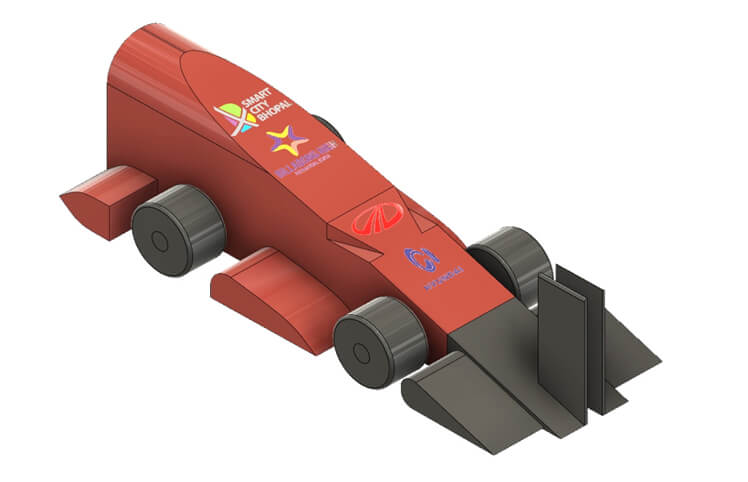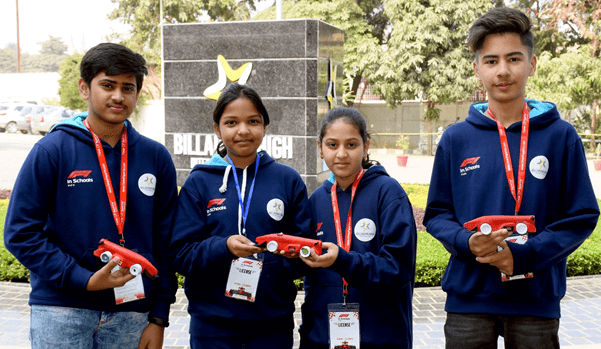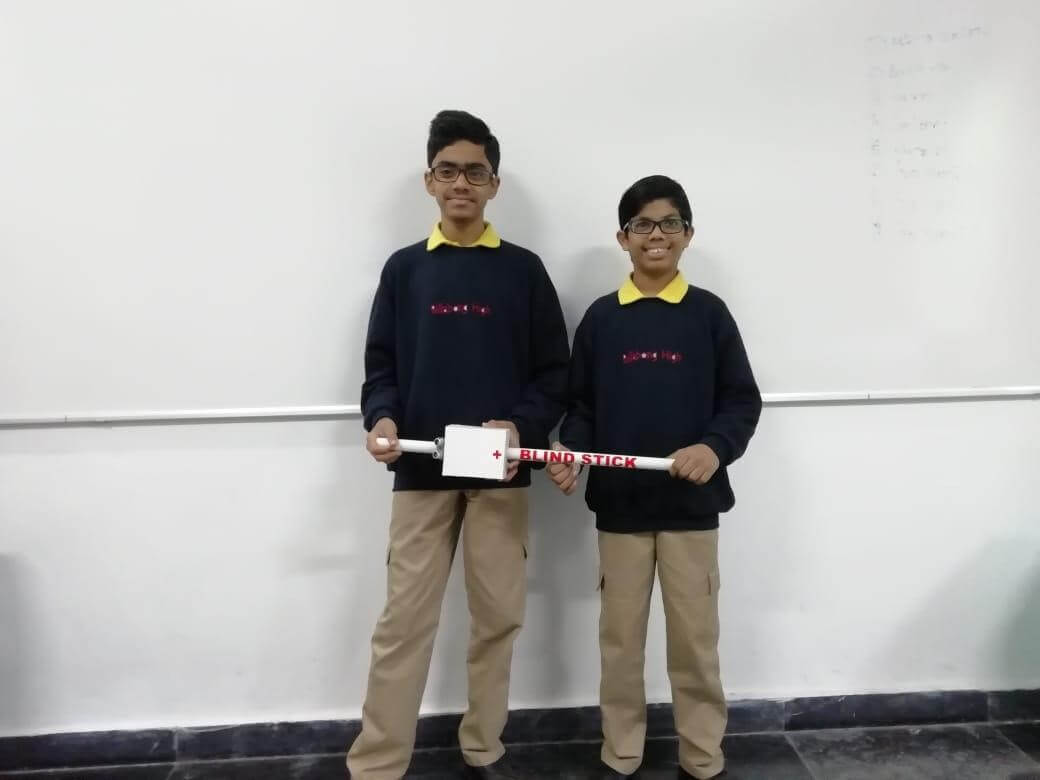With various industries, like, farming, medicine, tech, transport, defence, etc. transitioning to a robotic work force, it is highly essential to train students and expose them to automation.
Taking our interdisciplinary approach to learning a step further, the school offers Robotics as a convergence of engineering, science, technology, and creativity, seamlessly blending into a pathway to the future. Inaugurated in the year 2016-17, the robotics lab is the first such lab to be established in any high school in Bhopal.
Though the department is comparatively new, the students are already making rapid progress towards forming their own team, actively participating in competitive robotics events at the regional, national, and international levels. They have worked on creating innovative models using technology as well.
Billabong High was the first school in Bhopal that took part in the First Lego League (FLL) and went on to win the ‘Best Project’ award at FLL Nationals in 2018. It was nothing short of amazing to see the school team comprising 7 students working rigorously to come up with an innovative ‘SECWRAC’ (Simple Exercise Chair With Resistance And Cardio); an automated exercising chair that can be used for working out in space since it does not require gravity to function. This very model brought home the ‘Best Project’ award in the South-Nationals competition of FLL held on 23rd and 24th February 2019 at Candor School, Electronic City, Bangalore. Out of the 38 teams that participated in this competition. Billabong High was the only team to represent the state of M.P. at the national level.
The winning team comprised the brilliant students - Adheesh Dubey, Ibrahim Arab, Kevin Thomson, Mohammad Arshaan Khan, Naman Agrawal, Pranav Hari Prakash, and Urvang Lalwani.
Participating in this prestigious international STEM competition for children, where students have to design and manufacture a miniature car out of the official F1 Model Block using CAD/CAM design tools, was a worthwhile experience for our students. ‘Scarlet Raptors’, the team that represented Billabong High, Bhopal in this competition in 2018, won an award at the regional level. For this contest, students had to design Formula 1 miniature cars and 3D print them to minimize aerodynamic drag and achieve high velocity.


World Robot Olympiad™ is an event for science, technology, and education which brings together young people all over the world to develop their creativity and problem-solving skills through challenging and educational robotics competitions.
The school hosted the World Robot Olympiad India (WRO India) in 2019. The event saw the inaugural ceremony attended by 26 participating teams from cities across India, including Mumbai, Goa, Bhopal, Indore, and Vadodara. WRO India happens to be one of the largest Robotics competitions in India for students between the age group of 9 to 25 years. This exciting event was held across two categories: Regular Elementary and Regular Junior.

The children created IntelliBin, an intelligent dustbin with the purpose of easing the load of cleanliness on the Municipal Corporation, to encourage citizens to make use of dustbins with the help of ultrasonic sensors capable of detecting the presence of litter at a range of 50cm. When someone comes close to the sensor flap, this dustbin automatically opens for a window of 3 seconds. When the level sensor detects that the dustbin is 80 per cent full, it can send a warning message to the Municipal Corporation or other authorized agency along with its ID so as to notify it before the trash box is full.
This whole system can be monitored by a mobile app which was also made by students Rushank Goyal and Krishaa Sheetal Golghate. This project won the 2nd prize at the Innovation Festival held at the Regional Science Centre, Bhopal and was covered by the local media.

Bhawishya Achary and Prahlad Chandwaskar made a revolutionary stick which has a sensor and remote. This stick aims to guide the visually impaired in walking, alerting them of any object/obstacle by using the ultrasonic sensor. It also detects water or potholes. The stick is also configured with an RF remote which helps to find the stick within a range of 200 feet.

After carefully scrutinizing the existing scenario of using non-renewable energy sources for lighting the streets, Mohammad Arshaan Khan, Veer Dosi, and Rishabh Jalori devised a Self-Sustainable Street Light which does not require any electrical supply to function as it works on wind and solar energy. The streetlight can harvest wind through a vertical turbine and a solar panel. The intensity of the light can also be adjusted depending on the light outside.
Students brought home the first prize at the 1st Lake City Science Model Exhibition organized by the Regional Science Centre, Bhopal on 26th and 27th November, 2019. They also received a cash prize of Rs. 2000 for this innovative model.
Veer Dosi was the only school student who competed in IIT Mumbai’s Techfest 2020 held from 3rd to 5th January 2020. He participated in the ‘Innovationeering’ category wherein he presented an improved version of this ‘Self Sustainable Street Light’ which can also reduce light pollution with very high efficiency. He received a ‘Special Mention’ for being the youngest presenter in the event.

With cities getting densely populated and green patches reducing significantly, our students built a model of a Self-Sustainable Park which would not only be carbon negative but also produce electrical energy. The flora-fauna would be carefully planned to create an ecologically sustainable and symbiotic environment considering the city and its local plantation needs. The plan comprises a forest which will be grown by the ‘Mitsu Silva’ method (Mitsu means dense in Japanese and Silva stands for the forest in Latin). This method implies growing a dense forest cover in a small area. Treehouses, a water recycling plant and swings are a part of this self-sustainable park which will incorporate the self-sustainable lighting model too.
Dr. Chinmaya Singh Rathore (Dean, IIFM Bhopal), Dr. Yogesh Dubey, and Dr. Ashish David (faculty members, IIFM Bhopal) took time out to review this project and shared their valuable inputs to improve the efficiency of this park.
